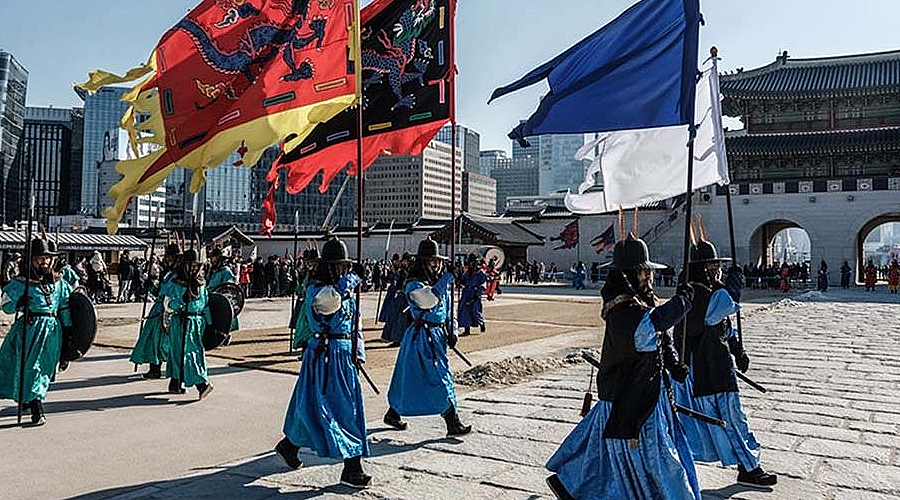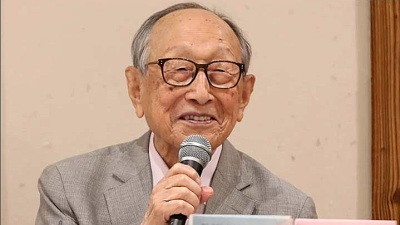
Recently, I came across an intriguing newspaper article titled “Has the Republic of Korea entered the path of decline?”
In this insightful article, professor emeritus Choi Jin-seok diagnosed the social and political maladies of South Korea, which he argues might have caused the country’s decline.
Choi came up with four factors that eventually make a country fall: extreme political conflict, extreme social disintegration, extreme populism and extreme corruption.
Choi also argues that a country is beginning to decline when politicians in power manipulate and control the judiciary, and when the people, who are not awake, let it happen, not realizing their country is falling.
In fact, that is exactly what has happened lately to some other countries.
Likewise, South Korea has experienced intense political clashes, relentless social disruptions, brazen populism and serious moral hazard.
Of course, our politicians are primarily responsible for such socio-political disturbances.
Nevertheless, ordinary people are not free from responsibility—some of them just look on with folded arms even when their country is in crisis, and others are brainwashed by such politicians and become their ardent supporters or followers.
Moreover, some of our politicians have attempted to influence the judiciary for political gain.
Meanwhile, ordinary people have remained mere onlookers, not realizing the danger they are in. Judging from this recent phenomenon, we may wonder whether South Korea has already entered the path of decline.
It would be disheartening if South Korea fails to become a truly advanced country or a global leader and instead is trapped in the web of middle-power countries or even set back to the level of an economically underdeveloped country.
Embarrassingly, however, our once much-coveted country now seems to have begun declining due to its never-ending ideological warfare, acute social polarization, unscrupulous populism and moral laxity.
For the past few decades, we have witnessed quite a few fully developed countries decline to the level of forcing some of their young women to foreign countries to make money as domestic helpers and bar staff.
We should not follow those countries’ footsteps.
Since the Korean War destroyed everything, we have strived to build a better society.
Some of us went to Germany as miners and nurses, and others went to Saudi Arabia as construction workers. Those of us who remained inside the country also worked so hard that we eventually succeeded in building an affluent society.
We should cherish and value our accomplishments because they were not easy to obtain. At the same time, we should be ultra-cautious not to ruin it all because wealth, fame and a good reputation are hard to earn, but easy to lose.
To prevent our country from declining, we must stop the political brawls, ideological polarity, reckless populism and moral depravity.
We also must seek reconciliation and cooperation, instead of discord and antagonism. Otherwise, we will all become miserable in a rapidly declining country, despairing as we watch all our accomplishments fade until they are finally “gone with the wind.”
These days, there are two terms that have become misused and abused.
They are “justice” and “democracy.” As for “justice,” the term is often confused with vengeance. However, revenge is far from justice.
We should immediately cease all political and personal vendettas that are paraded as “justice” in our society. Revenge only begets more revenge and thus it goes on forever.
As Douglas Horton warns, “While seeking revenge, dig two graves—one for yourself.”
As for “democracy,” many political leaders are tyrannical in the name of democracy these days.
Their notion of democracy frequently turns out to be a “people’s democracy” or mob democracy that makes possible the kind of “people’s courts” seen in authoritarian socialist countries.
Clearly, this is different from the liberal democracy we seek and cherish.
Another thing our country must shun in order to avoid decline is “extreme nationalism” because it can evoke extreme patriotism, anti-immigrant sentiments and xenophobia.
Furthermore, it will isolate our country in the international community, making our future grim and bleak.
As a country dependent on international trade, we are supposed to be on good terms with other countries and their people.
South Korea is passing the milestone of becoming the 12th largest economy in the world, the 5th greatest military power and the 11th highest in education.
We should not let this reputation decline or fall. Instead, we should strive to make South Korea a prosperous, advanced country and a highly esteemed global leader.
Right now, the world is anxiously watching South Korea. Will it flourish or decline? Which path Korea will take depends on our decisions and determination.
If we wake up and commit to positive change, we can replenish our seemingly exhausted possibilities and bring forth prosperity once again. If not, we will hopelessly decline, unable ever to prosper again.
Which way should we go? Now is the time to make up our minds.
(Kim Seong-kon is a Professor Emeritus of English at Seoul National University and a visiting scholar at Dartmouth College.)
ADVERTISEMENT
ADVERTISEMENT








































